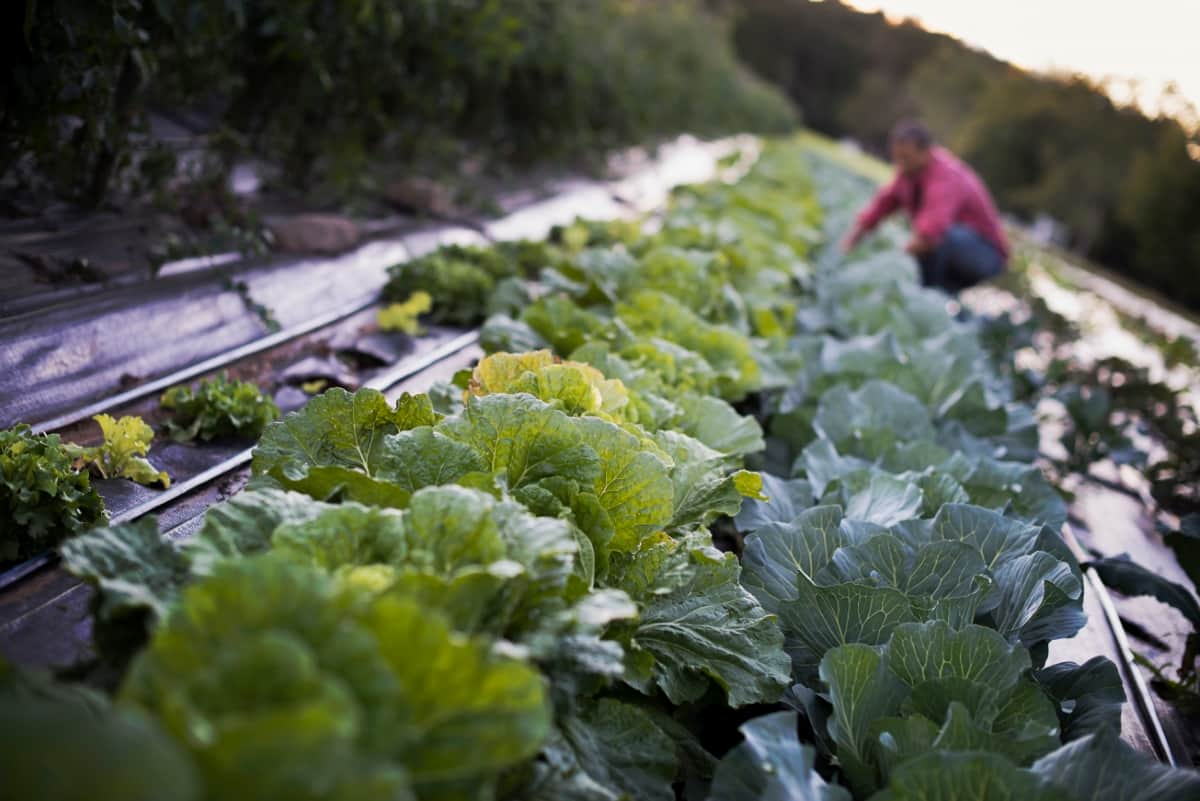Organic farming is a rapidly growing industry worldwide, and Argentina is no exception. With increasing awareness of organic produce’s environmental and health benefits, more and more consumers are seeking organic options. Because of this, there is a big chance for businessmen to start organic farming businesses in the country. This article will discuss the essential components of an organic farming business plan in Argentina, including investment and profit figures, financial planning, and the major cities for organic farming.

Organic Farming Business Plan in Argentina
Market Analysis
The first step in creating a successful organic farming business plan is to conduct a thorough market analysis. This involves researching Argentina’s demand for organic products, including consumer preferences and trends. It also entails identifying potential competitors and evaluating their strengths and weaknesses. Additionally, consider the major cities for organic farming in Argentina, such as Buenos Aires, Rosario, and Mendoza. These locations offer favorable conditions for organic agriculture and are close to key consumer markets.
Business Model and Strategy
Once you know a lot about the market, the next step is to make your business model and plan. This will involve deciding on the type of organic farming you want to engage in, such as crop production, livestock, or a combination of both. It is also essential to determine the scale of your operation and whether you will sell directly to consumers, through retailers, or via a combination of channels. Your strategy should also include plans for obtaining organic certification and meeting regulatory requirements.
Investment and Profit Figures
Developing a successful organic farming business in Argentina will require a significant initial investment. This includes the cost of acquiring land, constructing or renovating farm buildings, purchasing equipment and machinery, and obtaining organic certification. The total amount you need to spend will depend on the size of your farm, the type of gardening you do, and where you live. As a rough estimate, you can expect to invest between $100,000 and $500,000 to establish a small to medium-sized organic farming operation.
In terms of profitability, organic farming can offer higher returns than conventional agriculture due to the premium prices that consumers are willing to pay for organic products. However, it is essential to remember that organic farming typically has lower yields and higher production costs. As a result, it is crucial to carefully manage your finances and optimize your production processes to maximize profits. With the right approach, achieving a return on investment (ROI) of 10-20% within 3-5 years is possible.
Production Plan
A detailed production plan is critical to any organic farming business plan. This includes selecting the most suitable crops or livestock for your operation based on factors such as market demand, climate, soil type, and available resources. It also involves determining the best organic farming practices and techniques to ensure the health and productivity of your crops or animals while minimizing your environmental impact.
Marketing and Sales Strategy
An effective marketing and sales strategy is essential for the success of your organic farming business in Argentina. This includes making a strong brand name, making packaging that stands out, and marketing the unique selling points of your products, such as how good they are for your health and how good they are for the earth.
In case you missed it: Organic Farming Business Plan in Australia: Creating a Sustainable Green Future

Your sales strategy should focus on building relationships with retailers, restaurants, and other businesses that are interested in stocking or using organic products. You may also want to consider selling directly to consumers through farmers’ markets or online platforms.
Financial Plan
A solid financial plan is crucial for the success of any business, and organic farming is no exception. This involves creating a detailed budget, including projected revenues and expenses, a cash flow statement, and a balance sheet. It is also essential to plan for contingencies, such as unexpected equipment repairs or fluctuations in market prices. Finally, consider your financing options, such as loans, grants, or equity investments, to ensure that you have the necessary capital to launch and grow your organic farming business.
Human Resources and Management
The success of your organic farming business in Argentina will depend on the skills and expertise of your team. This includes hiring or partnering with experienced organic farmers, agronomists, and other specialists to ensure your operation runs smoothly and efficiently. Developing a strong management structure, with clear roles and responsibilities for each team member, is also essential. Investing in training and professional development for your staff will also help ensure they remain up-to-date with the latest organic farming techniques and best practices.
Risk Management and Insurance
Organic farming can be subject to various risks, such as extreme weather events, pest infestations, and fluctuations in market prices. It is essential to have a robust risk management plan in place to mitigate these potential challenges. This includes implementing preventive measures, such as crop rotation and diversification, to reduce the impact of pests and diseases. It is also crucial to have a comprehensive insurance policy in place to protect your business from financial losses due to unforeseen events.
Environmental and Social Sustainability
As an organic farmer, your commitment to environmental and social sustainability should be at the core of your business plan. This includes minimizing your carbon footprint, conserving water resources, and promoting biodiversity on your farm. It also involves engaging with local communities, providing employment opportunities, and supporting local suppliers and businesses. Demonstrating your sustainability commitment can help differentiate your organic products in the market and attract environmentally-conscious consumers.
Monitoring and Evaluation
Finally, it is essential to regularly monitor and evaluate the performance of your organic farming business to ensure that you are on track to achieve your financial and operational goals. This includes tracking key performance indicators (KPIs), such as yield, profitability, and customer satisfaction, and adjusting your strategy as needed. Regularly reviewing and updating your business plan will also help to ensure that it remains relevant and responsive to changes in the market and the external environment.
In case you missed it: Organic Farming Business Plan in the USA for Maximizing Yield and Profit

Conclusion
Establishing a successful organic farming business in Argentina requires careful planning, investment, and dedication. By conducting thorough market analysis, developing a solid business model and strategy, and implementing best practices in production, marketing, and financial management, you can position your business for long-term success.
- Feed Your Flock for Less: Top 10 Tips to Save on Chicken Feed
- Ultimate Guide to Ossabaw Island Hog: Breeding, Raising, Diet, and Care
- Hatching Answers: The Top 10 Reasons Your Chickens Aren’t Laying Eggs
- Eggs and Economics: Breaking Down the Cost of Raising Backyard Chickens
- Defend Your Greens: Proven Methods to Keep Iguanas Out of Your Garden
- Ultimate Guide to Cinnamon Queen Chicken: A Comprehensive Guide for Beginners
- Ultimate Guide to California Tan Chicken: Breeding, Raising, Diet, Egg-Production and Care
- Ultimate Guide to Marsh Daisy Chicken: Breeding, Raising, Diet, and Care
- 10 Types of Chicken Farming Businesses You Can Start for Profits